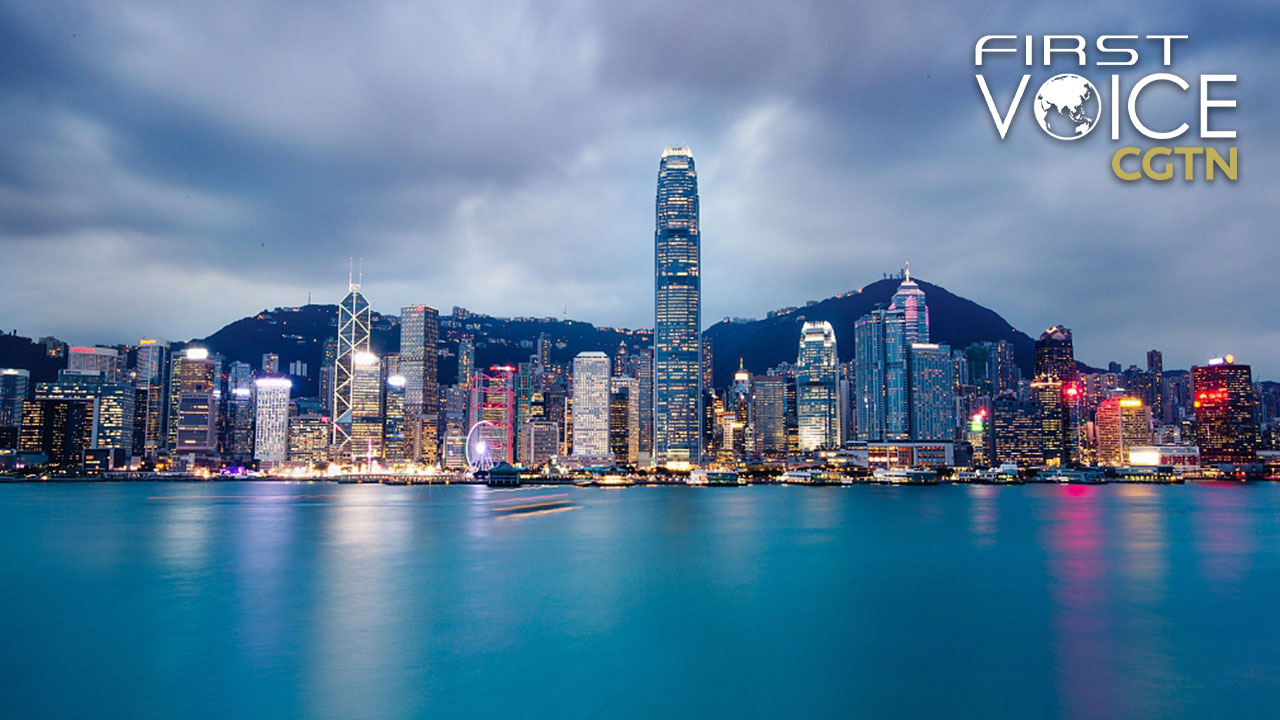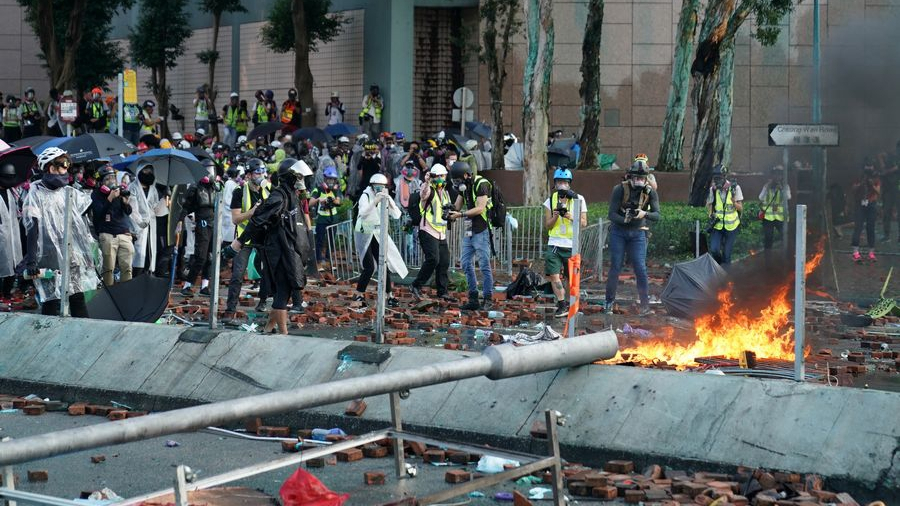
Editor's note: CGTN's First Voice provides instant commentary on breaking stories. The daily column clarifies emerging issues and better defines the news agenda, offering a Chinese perspective on the latest global events.
On February 28, China started a two-day forum in the southern Chinese city of Shenzhen to solicit public opinions of representatives from Hong Kong Special Administrative Region (HKSAR) on improving the region's electoral system and upholding the principle of "patriots governing Hong Kong." HKSAR Chief Executive Carrie Lam said on February 23 that this principle is important in sustaining "One Country, Two Systems."
Since Lam's statement, Western commentators have already labelled this endorsement as an attempt to muzzle the opposition and stifle dissent. It would be convenient to label the idea of "patriots governing Hong Kong" as an attempt by the Chinese central government to exert its control and eroding freedoms in the territory.
It is convenient but, without understanding the policy in a specific context, wrong.
The absence of context often results in unwarranted tirades, misgivings and castigation of certain case studies at the expense of others. As convenient as it may be, this element of subjectivity could once again expose the frailties of Western assessments on HKSAR that requires greater introspection instead of certainty.
As a sovereign state in the international system, China's aversion to secessionist tendencies, assaults on its government and foreign influence in its domestic affairs is similar to other governments and states. History is replete with various examples of such actions existing in Western countries. Viewing the situation in HKSAR in isolation is a controversial endeavor lacking an honest appraisal of ground realities.

Rioters in standoff with police outside of Hong Kong Polytechnic University in Hong Kong, China, November 17, 2019. /Xinhua
Rioters in standoff with police outside of Hong Kong Polytechnic University in Hong Kong, China, November 17, 2019. /Xinhua
Taking the recent Capitol Hill riot as an example, the Biden administration seeks justice from insurrectionists responsible for the siege of Capitol Hill. Arrests, detentions and trials have already taken place. Are they described as pro-democracy activists? Or are they rioters? Have they escaped justice? If the U.S. is justified in its punishment against violent rioters who assaulted its government buildings and institutions, then why is China trying to protect its own considered to be illegal and described as suppression?
There will always be a need to distinguish peaceful protesters demanding reform from arsonists and hate groups which are to be prosecuted under any criminal jurisdiction. It is inconceivable that top posts in the U.S. House of Representatives or the Senate will ever be occupied by anti-national elements. Far-right activists have often questioned the concept of the United States as a nation and the constitution, but they are not given political platforms. Any threat to the U.S. Constitution can result in criminal prosecutions against the offenders.
Xia Baolong, vice chairman of the National Committee of the Chinese People's Political Consultative Conference and head of the Hong Kong and Macao Affairs Office of the State Council, has said that being run by patriots must be complimented with addressing legal loopholes to improve Hong Kong's electoral system. It is to provide HKSAR residents with a fair political platform to address their problem while ensuring the security and stability of the country.
The complexities of HKSAR's political situation warrant clear understanding of the key nuances and the situation surrounding the city. It would be up to the West to either objectively see this case or subject themselves to their usual skepticism and suspicious toward China. Choosing to see it objectively might be a tough road, given that it entails looking at the issue with an angle different to their long-held prejudice.
The latter is convenient, but wrong.
Scriptwriter: Hamzah Rifaat Hussain
(If you want to contribute and have specific expertise, please contact us at opinions@cgtn.com.)

